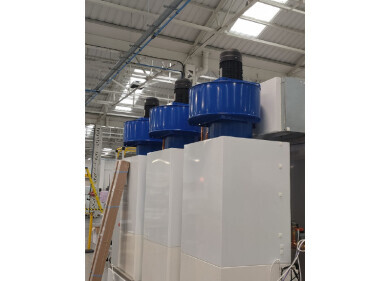Laboratory Products
Does Green Tea Reduce the Risk of Heart Attacks?
Jun 11 2018
From glowing skin to a hardy immune system, there are no shortage of health benefits linked to green tea. Now, scientists are claiming that the beverage could help reduce the risk of heart attacks. The study, led by researchers from the University of Leeds and Lancaster University, suggests that a molecule found in green tea could actively reduce plaque build-up inside arteries and as a result, minimise the risk of heart failure.
The dark side of “good cholesterol”
While high-density lipoprotein (HDL) is generally labelled as a "good cholesterol" the study explains that it does have a dark side. As the body ages a key HDL protein called apoA-I can start to misfold and form ultra-fine deposits on artery plaques. As a result, plaques are more likely to break up into chunks which can drastically increase the risk of developing coronary heart disease.
Cue green tea. Harvested from Camellia sinensis leaves that have not undergone the oxidisation process, green tea is hailed as one of the healthiest beverages on the planet. As well as nutrients and antioxidants it's loaded with a molecule called epigallocatechin gallate. Also known as EGCG, epigallocatechin gallate actively binds to apoA-I protein deposits and under certain circumstances, can help to dissolve build-ups. The study explored the intricate process, with findings published in the Journal of Biological Chemistry. It's not the first time EGCG has made headlines, with previous studies suggesting it has the capacity to break down certain plaque proteins linked to Alzheimers disease.
A step forward for coronary heart disease research
While the team assert that the findings could open new doors for heart attack research and prevention, they admit that it isn't quite as simple as drinking a cup of green tea a day.
“If you drink normal quantities of green tea it will probably be unlikely to have an effect,” comments Prof David Middleton, co-author of the study. “What we are saying is that we need to look at this molecule more carefully and figure out ways we can either adapt it to make it more [available to the body when taken] or ways of delivering it to the plaques.”
Studies involving food samples call for sophisticated, high-performance laboratory equipment. Highlighting a host of new features, 'Perfect Homogenisation of Food Samples with the New Knife Mill GRINDOMIX GM 200' introduces the latest technology setting new standards for food sample prep.
Digital Edition
Lab Asia 31.2 April 2024
April 2024
In This Edition Chromatography Articles - Approaches to troubleshooting an SPE method for the analysis of oligonucleotides (pt i) - High-precision liquid flow processes demand full fluidic c...
View all digital editions
Events
Apr 24 2024 Jakarta, Indonesia
Apr 25 2024 Istanbul, Turkey
Apr 28 2024 Montreal, Quebec, Canada
May 05 2024 Seville, Spain
InformEx Zone at CPhl North America
May 07 2024 Pennsylvania, PA, USA


.jpg)















